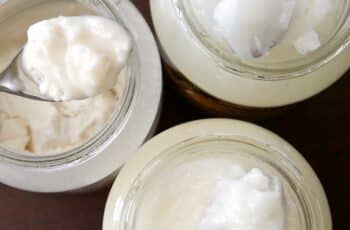
There are many things that can make your dog itch. It could have dry skin or be allergic to something.
No matter what’s making its skin itch, it’s something that needs to be fixed so it can feel better.
A dog’s itchy skin can be treated at home if a trip to the vet isn’t feasible.
Is it time to visit the vet?
Mild itching every now and then isn’t usually a sign of a severe health problem, but if your dog starts to show other symptoms like frequent or persistent itching or licking, trouble getting comfortable or restlessness because of itching, loss of appetite, or a sad mood, talk to your vet right away.
It’s important to treat the underlying cause of its severe, constant itching so that it doesn’t get more open wounds and skin infections. Depending on what’s wrong, your vet will treat your dog as needed.
How to help a dog that has an itchy skin condition
So how do you find the best way to make your dog stop scratching? Look for products made just for dogs that have ingredients that stop itching without being too harsh for each dog. We talked to Dr. Hilary Jones, a veterinarian, and the chief veterinary officer at DodoVet, about what you should think about before buying products to help your dog stop itching.
There are many things you can try to help your dog’s itchy skin, like medicated and natural shampoos, sprays, balms, supplements, and even home remedies.
Natural shampoos
Most natural products have ingredients you already know, like oatmeal, lavender, and coconut oil. They work best for mild skin problems.
Medicated shampoos
Medicated products have active ingredients (most of which you probably can’t say) that are made to treat skin that itches. Medicated shampoos are best for dogs with serious skin problems and/or underlying conditions. They can be too harsh for dogs with a mild itch.
“Medicated shampoos are great for dogs with secondary skin infection from their allergies,” Dr. Jones told The Dodo. “Allergies can really damage that protective barrier of the skin and cause some inflammation, which is the perfect environment for secondary infection.”
A medicated bath can help relieve pain, support and hydrate the skin, and treat bacterial and fungal infections on the surface. During an active infection, a vet may suggest bathing the dog two to three times a week and leaving the shampoo on for at least 10 minutes before rinsing (but of course talk to your vet for a tailored recommendation for your own pup).
Here are some things you should look for in a medicated shampoo:
- Miconazole: Heals infections caused by fungi.
- Chlorhexidine: This ingredient is often used in hospitals to clean wounds or places where surgery has been done. It works by killing bacteria on the skin and stopping them from coming back.
- Ketoconazole: Helps stop infections from fungi, skin infections, ringworm, and even dandruff.
- Ceramides: Help keep the skin from drying out and keep germs from getting into open wounds.
Balms
You can easily put skin balms on your dog’s skin with your finger. They help repair and calm irritated spots on the skin and paws and can also help other skin conditions in dogs.
Sprays
Most sprays are safe to use every day. The spray itself can cover a large area, stops itching right away in a gentle way, and helps stop lesions from spreading. And they don’t hurt!
Home remedies
Dr. Jones says that you should talk to your vet before trying any home remedies on your dog since they can hurt your dog if used wrong.
“The only home remedy I generally recommend is Epsom salt paw soak for dogs who get cystic pododermatitis,” Dr. Jones said. “If used in some cases where things are too raw, it can really sting, so you need to check with your vet first.”
Supplements
Supplements are often used to treat joint pain and problems with digestion. They can also help if your dog’s skin is itchy and uncomfortable. Most supplements have ingredients that reduce inflammation, which is the main cause of itching and can help keep the skin moist.
The most effective dog itch remedy
Note: It’s best to talk to your vet before giving your dog a new skincare routine.
Best overall itch relief for dogs: Pet MD Antiseptic & Antifungal Medicated Shampoo
The medicated shampoo from Pet MD is a real workhorse. It helps treat fungal and bacterial skin infections like hot spots, ringworm, and acne. It can also help with skin problems caused by small cuts, abrasions, and bug bites.
Best moisturizing itch relief: Dechra MiconaHex + Triz Medicated Shampoo for Dogs & Cats
This shampoo is made to treat fungal and bacterial skin infections by killing bacteria and fungi and keeping the skin moist. It also has ceramides in it, which help heal your dog’s dry, cracked skin. “I love the Dechra MiconHex shampoo, and especially their Mal-A-Ket wipes,” Dr. Jones said.
Best itch relief for yeast: Douxo S3 PYO Shampoo
This shampoo says that it will clean, hydrate, and help support your dog’s skin and that in just seven days, yeast will be gone. Dr. Jones said, “Douxo S3 products are my go-to for really itchy pets with smelly, red, itchy skin.” “I love them because they are antifungal, antibacterial, and have phytosphingosine, which helps restore that natural protective barrier. Also, they don’t stink, which is good for everyone.”
Best oatmeal cream: Bio-Groom Natural Oatmeal Soothing Anti-Itch Dog Cream Rinse
Colloidal oatmeal works to keep your dog’s skin moist, calm inflammation, and make a barrier that protects the skin. This cream rinse will not only stop your dog from scratching, but it will also help protect her skin if she has recently had small cuts, burns, scrapes, chapped skin, or bug bites.
Best for (temporary) hot spot relief: Burt’s Bees for Dogs Soothing Hot Spot Spray
If your dog has hot spots, this natural spray can help give them temporary relief. It can also stop your dog from biting or scratching the sores. To treat hot spots, however, it is best to ask your vet for help. “There are some great topical and even oral medicines that can help, like the one above,” Dr. Jones said. “
However, most products that help hot spots are only available with a doctor’s prescription. Since hot spots can get so bad so quickly, I would suggest going to the vet instead of trying to treat them at home.”



